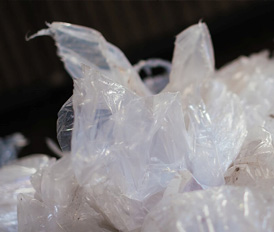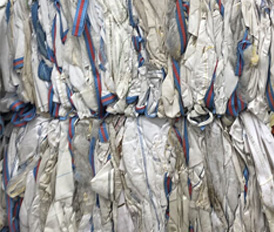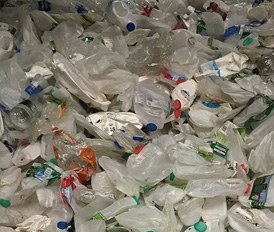The Price of Oil, The Cost to Plastic
by George Kiernan
Pakire Polymers News
In March 2020, the coronavirus pandemic consumed the world almost overnight and saw entire nations come to a near standstill. Countries around the globe went into lockdown and halted all non-essential business and travel; the effects of this have been widespread and varied, with among the most significant being the dramatic reduction in the consumption of crude oil. As you might expect, this has caused a significant drop in oil prices; April 2020 even saw the price enter negative territory (WTI $11.57, Alberta $6.09, Saudi Arabia $13.78) – where the cost of production exceeds the sale price.
The impact of cheap oil has global reach and is of particular significance for manufacturing sectors. Crude oil is the main raw material in the production of many plastics, and with the price of oil being so low it has become extremely cheap to manufacture virgin plastic. Cheap virgin plastic could spell disaster for the recycling industry; new plastic being as inexpensive as it currently is takes away the economic incentive for manufacturers to use recycled polymers.
This will inevitably mean a loss of profit for recycling facilities and that many of them will risk becoming financially unviable. A decline in the number of plastic recycling facilities would not only truncate the amount of plastic that gets recycled, but also the amount of recycled material that gets used.
A diminishing availability of recycled plastic could not come at a worse time; the pandemic has caused a spike in demand for plastic products such as packaging materials and PPE. An increased demand for plastic without sufficient recycled material to supply it would open up more space in the market for virgin plastic to swell into. More virgin plastic and fewer facilities to recycle it would cause a surge in the amount of plastic being sent to landfill, and ultimately the amount of plastic becoming pollution.
If virgin plastic is allowed to gain a stronghold in areas held by recycled plastic and establish itself as the unrivalled industry standard, then this could set the recycling sector back decades. Government incentives for businesses to both use recycled plastics and send their used plastic scrap material to recyclers are a necessity at this point. Action needs to be taken if the decades of progress made towards sustainable business models are not to be lost.
Some oil companies are trying to solve the price issues themselves; to counter the low demand, many have taken to hiring tankers – at incredible cost – to store their oil at sea. Unfortunately, many countries have been bulk buying huge amounts of oil while the prices are low to last them for years into the future. China, for example, has made record purchases of oil over the summer months.
This risks drawing out the oil price problem even further. Oil companies will eventually want to sell the oil they have been storing, but when many of the biggest oil-buying countries are not looking to buy they will find themselves back in the same predicament. They will again have to choose whether to drop prices and sell their oil at low rates, to continue leasing tankers at huge expense to store their oil at sea or even whether to simply dump the oil. We have recently seen a second wave of tankers being leased by companies such as Vitol, Glencore and Litasco, but it is not yet clear what long-term strategies the major oil companies are preparing.
Cheap oil will have a destabilising effect on many industries, with plastics and the recycling sector being among the most significantly impacted. Until clear long-term plans are introduced to manage the problem, governments must act to keep the recycling sector viable and save the progress that has been made in sustainability across the global economy.
Share article on your social media
More related articles
Work with Us
If you have a passion for recycling and for achieving a sustainable future, then we want to hear from you.





